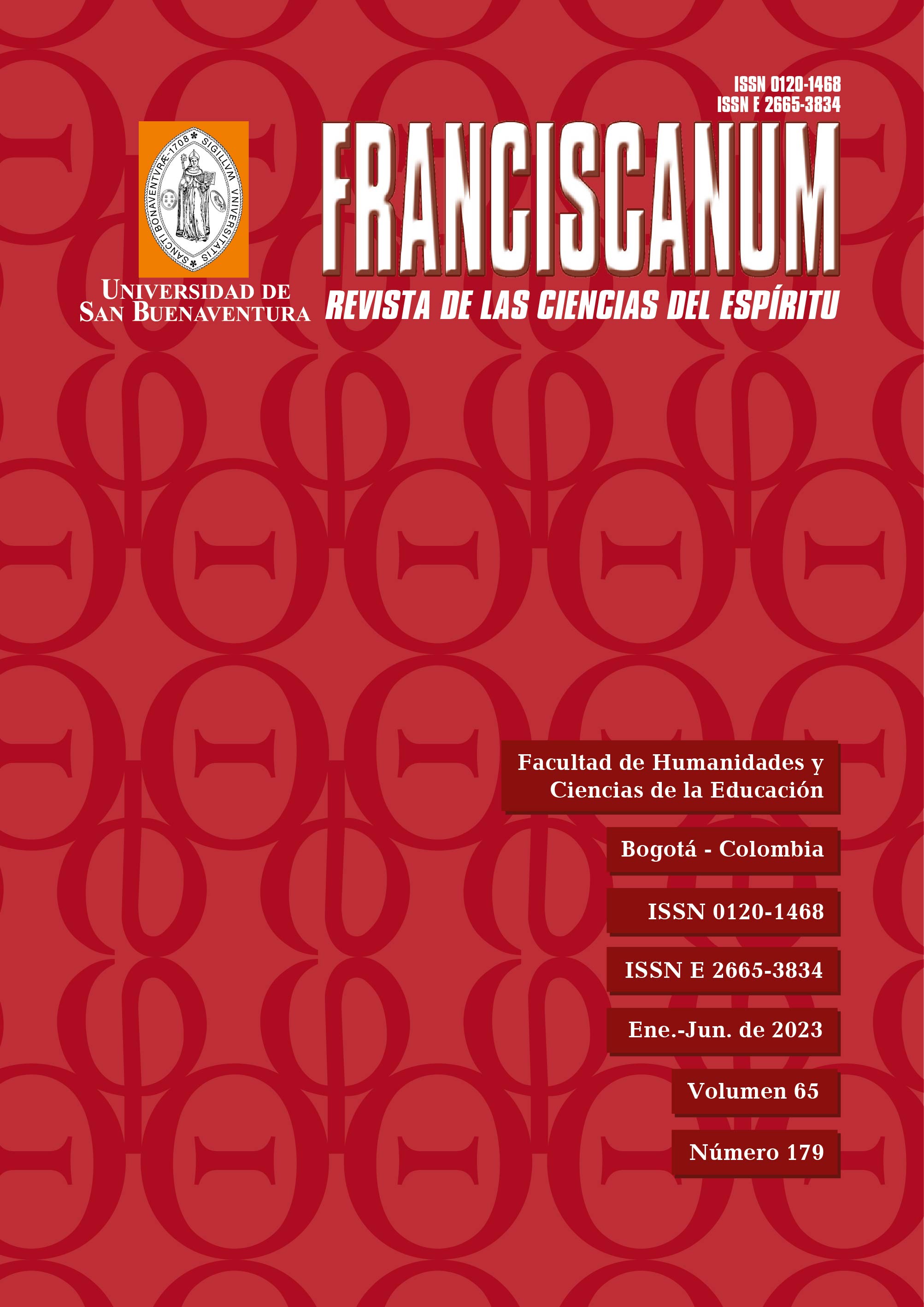This journal provides immediate open access to its content, based on the principle that giving the public free access to research helps a greater global exchange of knowledge.
Therefore, the Creative Commons 4.0 Attribution Attribution - Equal Share (by-sa) License is accepted: The commercial use of the work and the possible derived works is permitted, the distribution of which must be done with a license equal to that regulates the original work.
http://creativecommons.org/licenses/by-sa/4.0/
Along these same lines and in line with the Open Access policy, it is clarified that the authors maintain their rights to articles, without restrictions and, in the same way, they maintain their publication rights, without restrictions. They are only asked to reference the number of the Franciscanum magazine where the article initially appeared.
Abstract
The lament on the king of Tyre, which is in Ez 28,11-19, has its best interpretation in the masoretic text -that possibly was not the original-, on which one king of Tyre was magnificent and wise, but became arrogant and pretended to be a god, for that reason God ejects and anihilates him. Jewish tradition sees in this king either Adan or Eve, but those identifications, even if they throws new light on an aspect, do not explain the whole. The hebrew text could have a different interpretation from the masoretic one, in which the king of Tire was really a god, but that would be dismiss because of his pride. In this interpretive line it is possible to include the one that relates this lament with the creation as ugaritic and mesopotamic myths, which are also present in the Bible. God would have to fight with other gods to stablish order in creation.
Keywords:
References
Alonso, Schökel Luis y Sicre, José Luis. Profetas II. Madrid: Cristiandad, 1980.
Arbel, Daphna. «“Seal of Resemblance, Full of Wisdom, and Perfect in Beauty”: The Enoch/Metatron Narrative of 3 Enoch». The Harvard Theological Review 2, Vol. 28 (2005): 121-142.
Arbel, Daphna. «Questions about Eve´s Iniquity, Beauty, and Fall: The “Primal Figure” in Ezekiel 28:11-19 and Genesis Rabbah Traditions of Eve». Journal of Biblical Literature 4, Vol. 124 (2005): 641-655.
Brown, Francis; Driver, Samuel y Briggs, Charles, Hebrew and English Lexicon of the Old Testament. Oxford: Clarendon Press, 1951.
Cassuto, Umberto. A Commentary on the Book of Genesis. Part One. From Adam to Noah. Illinois: Varda Books, 2005.
Crouch, C.L. «Ezekiel´s Oracles against Nations in Light of a Royal Ideology of Warfare». Journal of Biblical Literature 3, Vol. 130 (2011): 473-492.
Griffin William, Paul. «Ethics and Psalm 82». Central States of Biblical Literature Meeting, 2009, 1-17.
Heiser, Michael S. «Are Yahweh and El Distinct Deities In Deut. 32:8-9 and Psalm 82?», (2006). LBTS Faculty Publications and Presentations. 278. consultada el 03 de mayo del 2022. https://digitalcommons.liberty.edu/lts_fac_pubs/.
Lee, Lydia. «“You Were the (Divine) Cherub”: A Potential Challenge to YHWH´s Sole Divintiy in Ezekiel 28.14». Journal for the Study of the Old Testament 1, Vol. 41 (2016): 99-116.
McClellan, Daniel. «The Gods-Complaint: Psalm 82 as a Psalm of Complaint». Journal of Biblical Literature 4, Vol. 137 (2018): 833-851.
Mckenzie, John L. «Mythological Allusions in Ez 28,12-18». Journal of Biblical Literature 15 (1954): 322-327.
Mihaila, Alexandru. «Temple and Paradise. Some Remarks on the Dynamics of Sacred Place». RES 2, Vol. 13 (2021): 145-159.
Naudé, Jacobus A. y Miller-Naudé, Cynthia L. «The Septuagint translation as the key to the etymology and identification of precious stones in the Bible». Teologiese Studies / Theological Studies 4, Vol. 76 (2020): 1-17.
Patmore, Hector M. Adam, Satan, and the King of Tyre (Jewish and Christian Perspectives Series 20), Leiden – Boston: Brill, 2012.
Ravasi, Gianfranco. Giobbe. Roma: Borla, 1991.
Ryan Brown, Caleb. Psalm 82: Gramatical / Syntactical Issues and How the Divine Council Practically Expresses itself in Biblical Theology. Evangelical Theological Seminary, ThD Thesis, 2020.
Stark, Thom. «The Most Heiser: Yahweh and Elyon in Psalm 82 and Deuteronomy 32». Religion at the Margins (2011). Consultada en enero 20, 2022. http://religionatthemargins.com/2011/07/the-most-heiser-yahweh-and-elyon-in-psalm-82-and-deuteronomy-32.
Strine, C. A. y Crouch, C. L. «YHWH´s Battle against Chaos in Ezekiel: The Transformation of Judahite Mythology for a New Situation». Journal of Biblical Literature 4, Vol. 132 (2013): 883-903.
Tsevat, Mtitiahu «God and the Gods in Assembly. An Interpretation of Psalm 82». Hebrew Union College Annual Vols. 40/41 (1969-1970): 123-137.



















